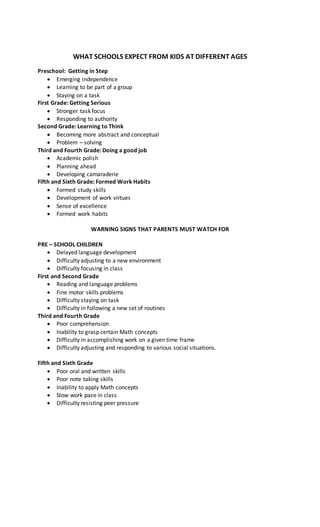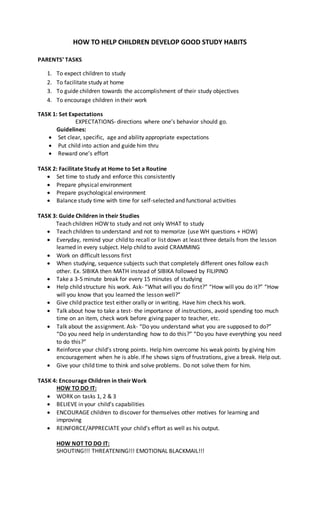This document provides information on what schools expect from children at different ages, warning signs parents should watch out for, how to motivate children, develop good study habits, and the benefits of having good study habits. For preschool, schools expect emerging independence, learning to be part of a group, and staying on task. In first grade, they expect stronger task focus and responding to authority. Warning signs for preschoolers include delayed language, difficulty adjusting, and focusing. Developing good study habits involves setting expectations, facilitating study at home, guiding children in their studies, and encouraging them. The benefits are building positive attitudes, motivation to learn more, developing lifelong skills, confidence, and success.



